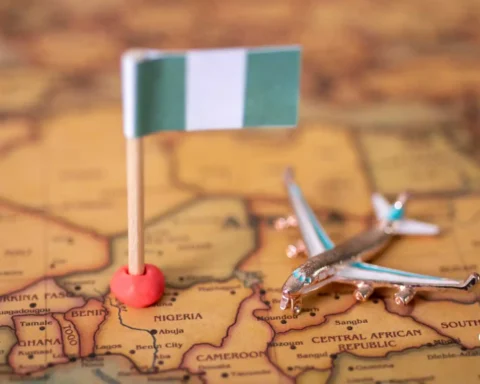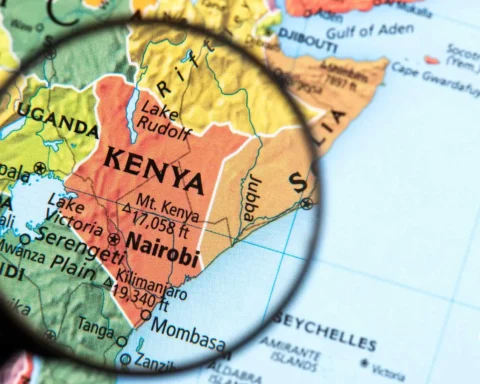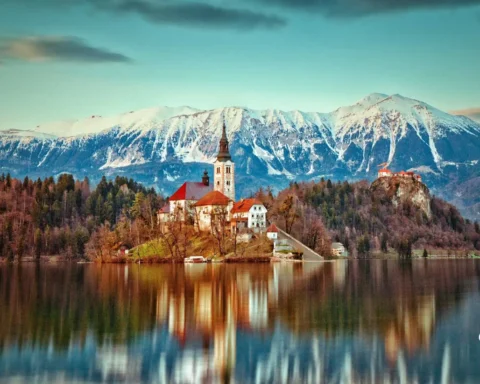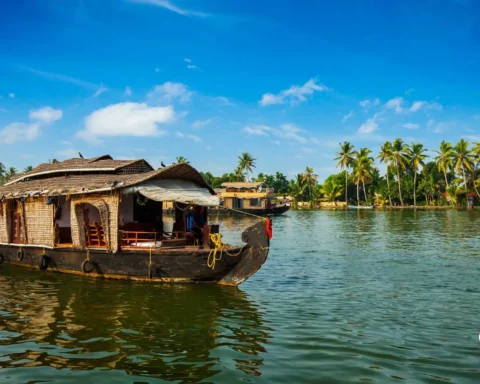Welcome to my blog, your ultimate resource for embarking on a solo adventure in the captivating and diverse landscapes of Uganda. If you've ever dreamed of exploring a destination that seamlessly blends breathtaking natural beauty with vibrant culture and wildlife, then Uganda is the place for you. With this complete guide, I'll be your travel companion, providing you with a wealth of information and friendly tips to ensure your solo travel through Uganda is not only unforgettable but also safe and enriching. From tracking gorillas in lush rainforests to navigating the bustling streets of Kampala, my blog will be your go-to source for all things Uganda. So, pack your bags, get ready for an extraordinary adventure, and let's explore the Pearl of Africa together!
Table of Contents
Benefits of Solo Travel
Solo travel in Uganda offers a myriad of unique benefits that can make your journey truly memorable and enriching. Here are some of the advantages:
- Freedom and Independence: Solo travel allows you to set your own pace and itinerary. You have the freedom to explore Uganda's diverse landscapes and cultural attractions on your terms, without having to compromise with travel companions.
- Personal Growth: Traveling alone often pushes you out of your comfort zone, promoting personal growth and self-discovery. You'll become more self-reliant and confident as you navigate unfamiliar environments and interact with new people.
- Cultural Immersion: Solo travelers tend to engage more deeply with local cultures and communities. Without the buffer of a group, you're more likely to strike up conversations with locals, learn their customs, and gain a richer understanding of Uganda's diverse traditions.
- Flexibility: You can be spontaneous and adapt your plans as you go. If you want to spend an extra day exploring a national park, you can do so without worrying about group dynamics or pre-set schedules.
- Unique Experiences: Solo travelers often have more opportunities for unique and intimate experiences. Whether it's bonding with a local family, stumbling upon hidden gems, or getting off the beaten path, you're more likely to have serendipitous encounters.
- Minimal Budget Impact: Traveling alone can sometimes be more budget-friendly. You have more control over your expenses, and you can opt for accommodations, dining, and activities that suit your budget.
- Greater Wildlife Encounters: In Uganda, solo travelers can get closer to wildlife during activities like gorilla tracking and safari drives. Smaller groups may have more access and a quieter, less disruptive presence in natural habitats.
- Personal Reflection: Solo travel provides valuable time for introspection and self-reflection. As you immerse yourself in Uganda's stunning landscapes and observe its wildlife, you may find a deeper connection with nature and yourself.
- Friendships: Paradoxically, solo travel often leads to making more friends along the way. You'll meet fellow travelers, connect with locals, and build meaningful relationships that can last a lifetime.
- Empowerment: Successfully navigating a foreign country alone can be incredibly empowering. You'll develop problem-solving skills, learn to trust your instincts and gain a sense of accomplishment with each new experience.
While solo travel in Uganda offers these advantages, it's essential to prioritize safety and research thoroughly before embarking on your journey. With proper preparation and an adventurous spirit, you'll have an unforgettable and enriching solo adventure in the heart of Africa where you can enjoy the experience at your own pace with no rat race.
Destinations for Solo Travel
Uganda offers a diverse range of attractions and destinations that are perfect for a solo trip. Here are some must-visit places to explore during your solo adventure in Uganda:
- Bwindi Impenetrable National Park: This UNESCO World Heritage Site is famous for gorilla trekking. You can embark on a thrilling and unique adventure to observe these magnificent mountain gorillas up close in their natural habitat.
- Queen Elizabeth National Park: Known for its diverse wildlife and stunning landscapes, this park offers safari opportunities to see elephants, lions, hippos, and more. The Kazinga Channel boat cruise is a must-do activity.
- Murchison Falls National Park: Witness the awe-inspiring Murchison Falls, where the Nile River squeezes through a narrow gorge. Take game drives or a boat safari to explore the park's rich wildlife.
- Kibale Forest National Park: Experience chimpanzee trekking, Uganda safaris, morning game drives, and walking through lush tropical forests in search of these charismatic primates. The park is also home to diverse bird species.
- Lake Bunyonyi: A serene and picturesque lake dotted with islands, Lake Bunyonyi is perfect for relaxation and water-based activities like canoeing and swimming. It's an excellent place to unwind.
- Jinja: Known as the "Adventure Capital of East Africa," Jinja is famous for the source of the Nile River. You can go white-water rafting, bungee jumping, or take a boat trip to explore the Nile's origins.
- Rwenzori Mountains: For trekkers and mountaineers, the Rwenzori Mountains, also known as the "Mountains of the Moon," offer a challenging adventure. Explore glacial peaks, lush valleys, and unique flora.
- Kampala: Uganda's capital city is a vibrant and lively place to experience urban culture. Visit markets, and historical sites like the Kasubi Tombs, and enjoy the city's nightlife.
- Sipi Falls: This series of stunning waterfalls near Mount Elgon offers breathtaking scenery and hiking opportunities. You can trek to the waterfalls and enjoy the tranquil atmosphere.
- Fort Portal: A charming town surrounded by lush tea plantations and crater lakes, Fort Portal is an excellent base for exploring nearby attractions like Kibale Forest and Queen Elizabeth National Park.
- Entebbe: Explore the botanical gardens, visit the Ngamba Island Chimpanzee Sanctuary, and relax on the shores of Lake Victoria in this picturesque town near the international airport.
- Semuliki National Park: Discover the unique Semuliki Valley and its hot springs. This park is also known for its birdwatching opportunities and diverse wildlife.
Remember to plan your trip carefully, especially when traveling solo. Ensure you have the necessary permits and accommodations booked in advance, and consider hiring a local guide for certain activities to enhance your experience and safety. Uganda's welcoming and friendly atmosphere makes it an excellent destination for solo travelers seeking adventure and cultural immersion.
The Ultimate Solo Travel Guide to Uganda
Uganda, known as the "Pearl of Africa," is a captivating destination with diverse landscapes, abundant wildlife, and rich cultural heritage. For solo travelers seeking adventure, natural beauty, and unique experiences, Uganda has much to offer. Here's a comprehensive guide to help you plan your solo journey through this incredible East African country.
1. Visa and Entry Requirements:
- Check the visa requirements for your nationality before traveling to Uganda.
- A tourist visa can typically be obtained on arrival at Entebbe International Airport or land border crossings.
2. When to Visit:
- Uganda's dry season (June to August and December to February) is the best time for wildlife viewing and trekking.
- The wet season (March to May and September to November) offers lush landscapes but may make travel to some areas more challenging.
3. Health and Safety:
- Consult your doctor for necessary vaccinations and medications, including anti-malaria prophylaxis.
- Use insect repellent and wear long sleeves and pants to prevent mosquito bites.
- Drink bottled or purified water, and practice good hygiene.
- Respect local customs and dress modestly, especially in rural areas.
- Ensure your travel insurance covers medical emergencies and evacuation.
4. Itinerary Planning:
- Research and plan your itinerary, considering the destinations and activities that interest you the most.
- Leave room for flexibility in case you discover new opportunities along the way.
- Consider guided tours for activities like gorilla trekking, as permits are limited and should be booked in advance.
5. Accommodation:
- Choose from a range of accommodations, including hostels, guesthouses, budget and mid-range hotels, luxury lodges, and campsites.
- Book accommodations in advance during peak tourist seasons.
6. Transportation:
- Use buses, matatus (shared minibusses), and boda bodas (motorcycle taxis) to reduce transportation costs to travel between cities and towns.
- Consider public transport mostly, but you can also hire private vehicles for added comfort and convenience, especially for long-distance travel.
- Check the safety and reliability of transportation providers before booking.
7. Currency and Money Matters:
- The currency in Uganda is the Ugandan Shilling (UGX).
- ATMs are widely available in major cities and towns.
- Inform your bank of your travel plans to avoid card issues.
8. Wildlife and Nature Experiences:
- Go gorilla trekking in Bwindi Impenetrable National Park or Mgahinga Gorilla National Park.
- Enjoy game drives and safaris in national parks like Queen Elizabeth, Murchison Falls, and Kidepo Valley.
- Explore the stunning landscapes of Lake Bunyonyi, the Rwenzori Mountains, and Sipi Falls.
- Discover the unique birdlife and primates in Kibale Forest National Park.
9. Cultural Experiences:
- Visit local markets, museums, and cultural centers to learn about Uganda's diverse cultures.
- Attend cultural performances and ceremonies to immerse yourself in traditional music, dance, and rituals.
10. Food and Cuisine: - Try Ugandan dishes like matoke (cooked bananas), posho (maize porridge), and rolex (chapati with eggs). - Sample street food for a taste of local flavors. - Be cautious with street food to avoid stomach issues.
11. Language: - English is the national language and is widely spoken, making it easy to communicate with locals.
Friendly Tips for Solo Travel
Certainly! Here are some friendly tips for solo travel that can help make your journey safer and more enjoyable:
- Research and Plan Ahead: Thoroughly research your destination, including its culture, customs, and travel advisories. Plan your itinerary, but also leave room for spontaneity.
- Pack Light: Traveling light reduces stress and makes you more mobile. Pack only what you need and choose versatile clothing. Always carry cash in a money belt.
- Stay Connected: Keep family and friends informed about your whereabouts and share your itinerary with them. Consider getting a local SIM card for affordable data and communication.
- Use Technology: Utilize travel apps for navigation, translation, and finding local recommendations. Download maps offline in case you lose internet connectivity.
- Stay Safe: Be aware of your surroundings and trust your instincts. Avoid risky areas, especially at night. Use reputable transportation options.
- Photocopies and Backups: Make photocopies of important documents like your passport, visa, and travel insurance. Store digital copies securely in cloud storage.
- Travel Insurance: Invest in comprehensive travel insurance that covers health emergencies, trip cancellations, and lost belongings.
- Learn Basic Phrases: Learning a few basic phrases in the local language can go a long way in connecting with locals and showing respect for their culture.
- Stay Healthy: Stay hydrated, eat balanced meals, and get enough rest. Carry a basic medical kit with essentials like pain relievers and bandages.
- Socialize Safely: Connect with fellow travelers in hostels and social settings. Make friends but exercise caution and trust your instincts when meeting new people.
- Solo Activities: Embrace solo activities like hiking, reading, or journaling. Solo travel is an opportunity for self-reflection and personal growth.
- Budget Wisely: Keep track of your expenses to avoid overspending. Consider cooking your meals or eating street food to save money.
- Respect Local Customs: Be aware of and respect local customs and traditions, including dress codes and etiquette.
- Stay Flexible: Plans can change, and unexpected opportunities can arise. Be open to adjusting your itinerary as needed.
- Stay Positive: Solo travel can have its challenges, but maintaining a positive attitude can make all the difference. Embrace the journey and the opportunity to learn and grow.
- Document Your Journey: Keep a travel journal or blog to document your experiences and memories. Take photos but remember to put the camera down and be fully present in the moment.
- Travel Responsibly: Minimize your impact on the environment and local communities. Support sustainable and ethical tourism practices.
- Stay Informed: Stay updated on local news and events, especially in areas with political instability or health concerns.
- Be Mindful of Scams: Be cautious of common travel scams and avoid sharing personal information with strangers.
- Enjoy Solitude: Solo travel offers a unique chance for introspection and self-discovery. Embrace the solitude and relish the freedom to do what you love.
Solo travel can be an incredibly rewarding and transformative experience. By following these friendly tips and staying mindful of your surroundings, you can embark on a safe and memorable adventure.
Conclusion
Uganda is an extraordinary destination for solo travelers, offering a rich tapestry of natural wonders, vibrant cultures, and incredible wildlife encounters. I hope this complete guide and friendly tips in my blog have inspired you to embark on your own solo adventure in the "Pearl of Africa." Embrace the freedom, immerse yourself in the beauty, and savor the transformative moments that solo travel in Uganda promises. Your journey awaits—go forth and create unforgettable memories in this enchanting corner of the world!
FAQs
What does the Kidepo Valley National Park offer for solo travelers?
Kidepo Valley National Park, nestled in Uganda's remote northeast, offers solo travelers pristine wilderness and incredible wildlife encounters, including the chance to spot lions, cheetahs, and elephants in a stunning, uncrowded setting. Its remoteness and unique landscapes make it an ideal destination for those seeking solitude and exceptional safari experiences.
How much money do you need for a day to travel to Uganda?
The daily budget for a traveler in Uganda can vary widely but generally ranges from $30 to $100 or more, depending on accommodation, dining choices, activities, and transportation preferences.
Which is the next common language spoken in Uganda other than English?
The next most commonly spoken language in Uganda, after English, is Luganda. It's widely used in the central region and Kampala, the capital city, as a lingua franca.
What are chimpanzee permits?
Chimpanzee permits are licenses that allow individuals to participate in guided chimpanzee tracking experiences in designated national parks and wildlife reserves. These permits grant access to observe and interact with wild chimpanzee populations while ensuring responsible tourism practices and conservation efforts.
What vaccination should I take before traveling to Uganda?
It is recommended to get vaccinations for yellow fever, hepatitis A and B, typhoid, and routine immunizations like measles, mumps, rubella (MMR), and diphtheria-tetanus-pertussis (DTaP). Consult a travel health clinic or your healthcare provider for personalized advice based on your itinerary and medical history.










